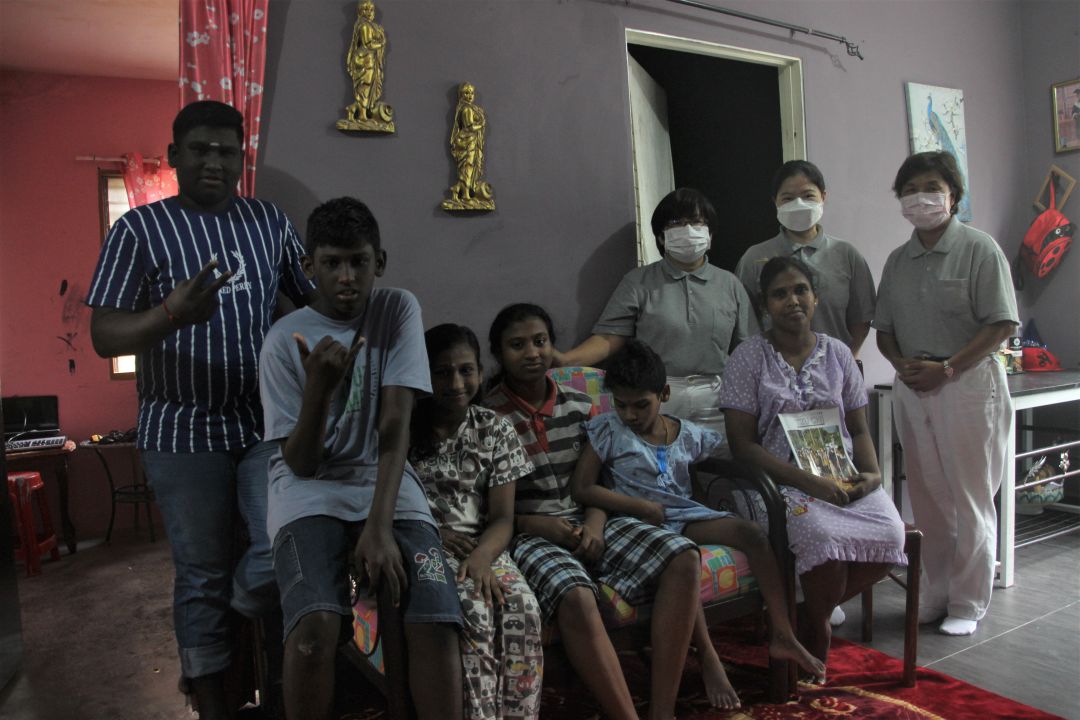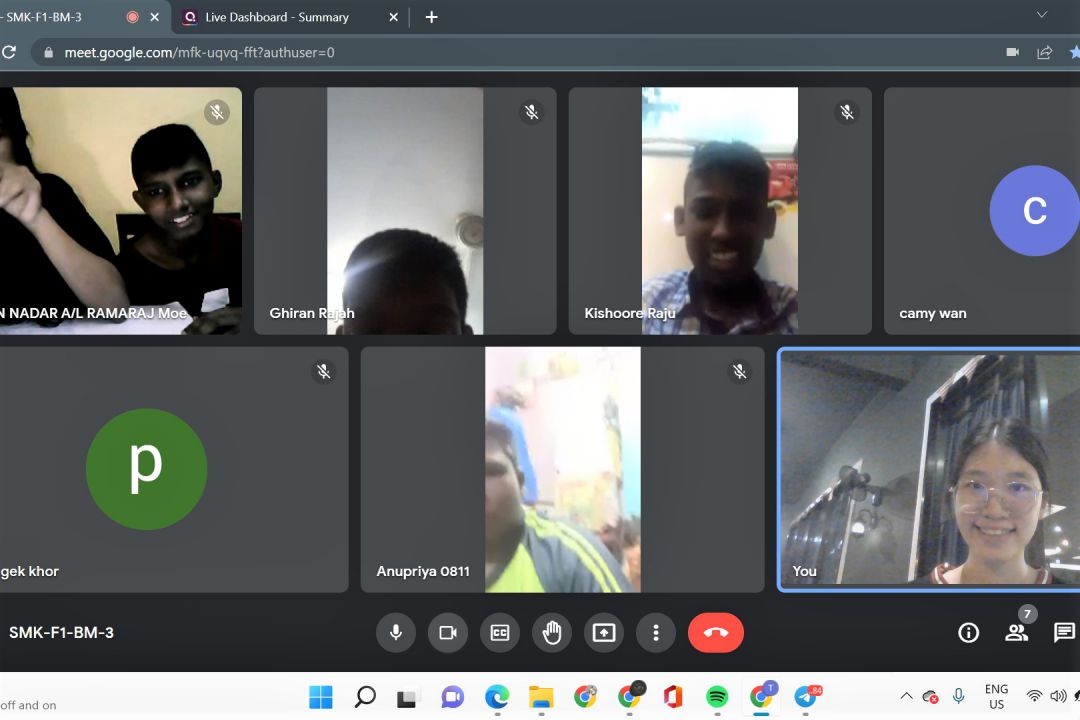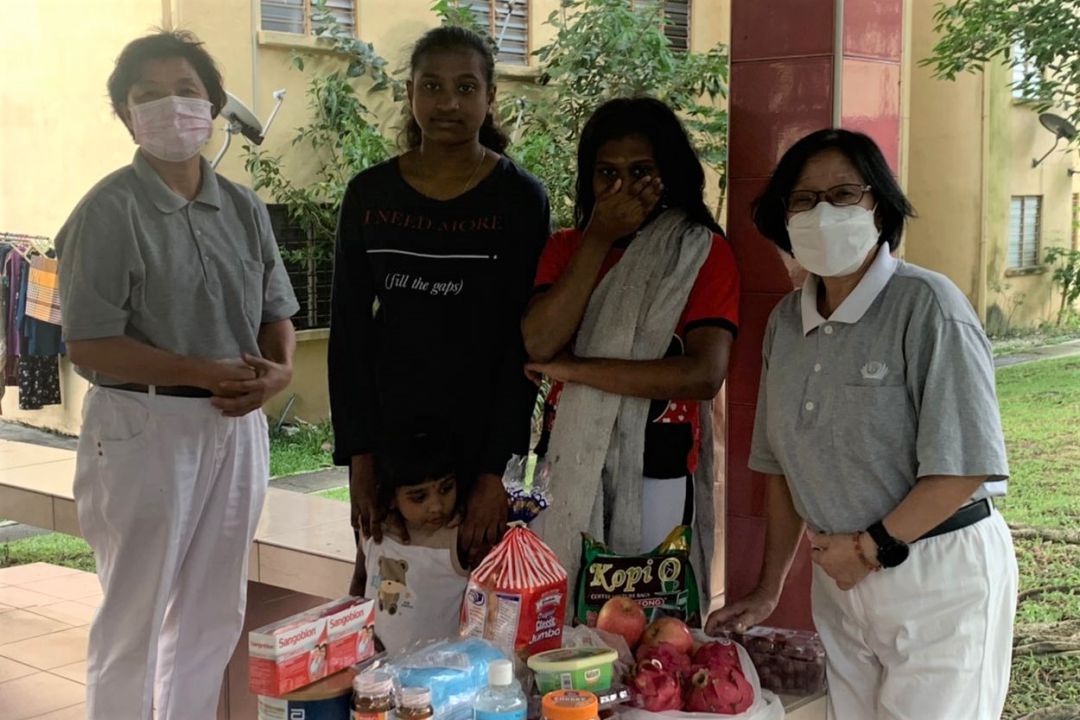Wan Pak Mooi has short and slightly curly hair. Straight-talking in nature and when not smiling, her bossy appearance belies her compassionate and tender heart.
More than a year ago, Pak Mooi first started assuming the leader role for charity cases and visited care recipient Vickneswary’s home. While she could bear with the cluttered environment, dim lighting, mottled walls, and kids frolicking around, she found it consuming to communicate with the care recipient, as she could not speak the Malay language well.

She recounted, “I felt sorry to see the mother in her 30s relying only on subsidies from Tzu Chi and the Social Welfare Department to feed her five children, as her addicted husband was frequently in and out of prison. Also, her eldest son had learning disorder, and her youngest daughter was unable to walk and had lost her vision. She was sure to suffer physically and mentally without care from others. As such, I decided to just give my best to care for this family.”
Together with two team members, Pak Mooi began to pay regular visits and care for Vickneswary’s family. Occasionally, they would bring them pre-loved clothing and bedding items, home appliances, and other things that the family needed.
Sixty-one-year-old Pak Mooi grew up in a single-parent family with 13 siblings. She started working before completing primary education in order to relieve her family’s burden. Once, she was ridiculed by the manager of a restaurant, where she worked as a waitress. The incident motivated her to study English part-time. With her determination and hard work, she managed to improve her English and was later promoted to become a supervisor. Subsequently, she went into the insurance industry, and successfully transformed her life.
She related, “I was ridiculed in public just because I could not find the word to express something in English. I was upset, but it had also awakened me to the importance of education.”
◎ From financial aid to education
During the Covid-19 lockdown in 2020, Vickneswary faced various challenges. Firstly, her husband returned home unexpectedly, and took away her wallet and the mobile phone her children used for online classes, after beating her. On learning that, Pak Mooi wasted no time to acquire a second-hand mobile phone and a computer for the children to resume their classes. Then, Vickneswary complained about food shortage. The volunteers collected monies among themselves to purchase vegetables and dry food for them to fill their stomachs.
When the “i∙didik” programme was launched, Pak Mooi immediately signed up for the four children. Besides checking on the children’s attendance and conditions, she also had to spend time communicating and coordinating matters on several chatgroups dedicated for the programme.
She said, “I have suffered a lot because I have little education. How can I not help these needy children? After all, education is their only hope.”

During the second phase of the online tuition, the eldest daughter quit the tuition as she was offered special tuition by her school teacher. As for the other siblings, their sessions were affected by unstable Internet connection; the noisy environment, which affected other children’s focus; and frequent absence from classes. Pak Mooi was often called by the Education Team to address these issues.
The Education Team had wanted to disqualify Vickneswary’s sons from attending the online tuition due to their high absenteeism, and allow the daughter to attend only the humanistic culture lesson.
“When I heard this, I got anxious for them. How can they afford the high tuition fees outside? My Malay language is limited, but I still had to find out what happened and find the solutions.” Pak Mooi stated her challenges.
As it turned out, the children did not know how to display their names in the virtual classroom, and they got disconnected sometimes due to network issue. Consequently, they were treated by the teachers as absent from class. After understanding this, the Education Team requested Pak Mooi to advise the children to take the classes seriously and to assist them in tackling the Internet issue, so that they could resume with the tuition.


●
Now that they have signed an Internet package, Pak Mooi hoped that the children could attend the online tuition punctually and catch up on their studies. “I am willing to help them overcome any obstacles they face, and I will not give up on them.” Pak Mooi smiled. Her face beamed with selfless love.


![It is Wan Pak Mooi's hope that the children enrolled for the “i∙didik” programme would receive comprehensive education, for education is the only hope for these underprivileged groups. [Photo by Chew Chin Wah] It is Wan Pak Mooi's hope that the children enrolled for the “i∙didik” programme would receive comprehensive education, for education is the only hope for these underprivileged groups. [Photo by Chew Chin Wah]](/images/Articles/CS/2022/CS_KL20221008_zzh02_016.jpg)
